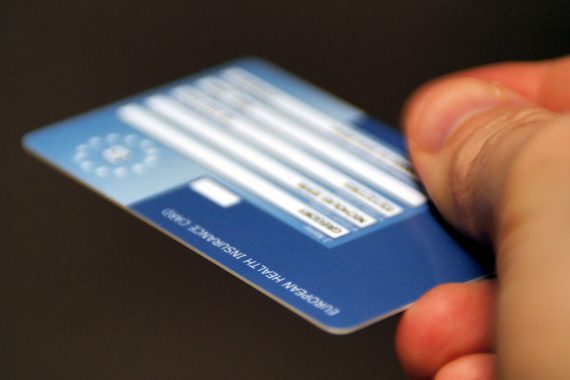The rules on treating overseas patients are unclear to many GPs. The BMA and NHS England released guidance in November in an attempt to clarify the situation but the rules are set to change after the Department of Health launched a three month consultation in December proposing that overseas visitors are charged for certain GP services. Before we have to get to grip with the new rules, how does the situation currently stand in England?
Do I have to treat a patient who lives overseas or is not a British citizen?
Yes – anyone in England, regardless of nationality and residential status, is eligible to register and consult with a GP. This includes all overseas visitors, asylum seekers and refugees, students, and people on work visas, irrespective of immigration status.
Can I charge?
Unless the patient chooses to be seen privately, practices are not permitted to charge overseas patients – including tourists – for registering or consulting with a GP.
How are GPs paid for treating overseas patients?
If the patient carries a European Health Insurance Card (EHIC), treatment costs can be recovered from the patient’s home country. Agreements whereby the NHS can recover costs from countries such as Australia when it has given visitors from that country free urgent treatment are currently under review.
What is the indemnity situation with overseas patients? Is it different?
While the main policy providers told Pulse that there are generally no restrictions, you should check your individual indemnity cover.
How is the situation for GP practices different from the situation for hospital care?
Whereas all overseas patients are entitled to receive NHS primary care at a GP practice only certain patients have a right to free secondary care. NHS England guidelines advise GPs to refer patients for secondary services on clinical grounds alone; it is the receiving organisation, not the GP, who is to assess a patient’s eligibility for free secondary care.
Should I register a patient as temporary or permanent?
A patient should be registered as temporary if they intend to be resident in the practice area for more than 24 hours but fewer than three months. If the patient intends to reside in the practice area for longer than three months, they should be registered as permanent.
Do I need to ask for proof of address?
Practices are not contractually obliged to ask for proof of address. While practices may ask for proof of address for practical reasons, a patient’s inability to provide this would not be a sufficient reason to refuse their registration.
So, if a patient claims to reside within the practice area but is unable to prove this, the practice must register the patient in the absence of evidence to the contrary.
What if they live outside my boundary?
If there is evidence that a patient lives outside of the practice boundary, GP practices are permitted to register them under the government’s ‘patient choice’ scheme. However, they are not obliged to do so.
NHS England states that there is no obligation for GPs to provide home visits or out of hours services for out of area patients.
Do I need to ask for the patient’s ID at registration?
Practices are not required to ask for the patients ID upon registration. However, practices can choose to implement a policy whereby they ask for patient ID as part of the registration process. Such a policy must explain the procedure in place for patients who are unable to supply identification, and any such policy must apply to all prospective patients equally.
Can I decline to register a patient?
GPs have limited discretion to decline to register patients. A GP can only refuse to register a patient if their list is closed to new patients, if the patient lives outside the practice boundary, or if other reasonable grounds for the refusal exist.
In the event that a practice does refuse a patient’s application, NHS England states that the practice is obliged to record the name, date and reason for the refusal. The practice must give the patient a written explanation of the refusal within 14 days.
Is deciding not to register a patient purely because of their status as an overseas visitor discriminatory?
Yes – all applications for registration must be considered in the same way. The prospective patient’s country of residence is irrelevant to the application process.
What if I suspect a patient of fraud?
If there is a suspicion that a patient is committing fraud, by using a fake address for example to try to obtain treatment, GPs ought nevertheless to register and treat the patient. However, GPs must refer the matter to their local NHS counter-fraud specialist or report the matter at www.reportnhsfraud.nhs.uk.
Is this guidance likely to change in the near future?
In early December 2015, the Department of Health announced proposals to start charging overseas visitors and migrants for some GP services. The proposals, subject to a three-month consultation, include charging overseas visitors for blood tests, lung function tests, prescriptions and eye care costs. Under the recommendations, GP and nurse consultations ‘would remain free to protect public health’. Overseas visitors and migrants who carry a European Health Insurance Card (EHIC) would be exempt, with the costs of their care recovered from their country of residence.
Pulse July survey
Take our July 2025 survey to potentially win £1.000 worth of tokens





 Oviva’s fully remote Tier 3 Weight Management programme
Oviva’s fully remote Tier 3 Weight Management programme







